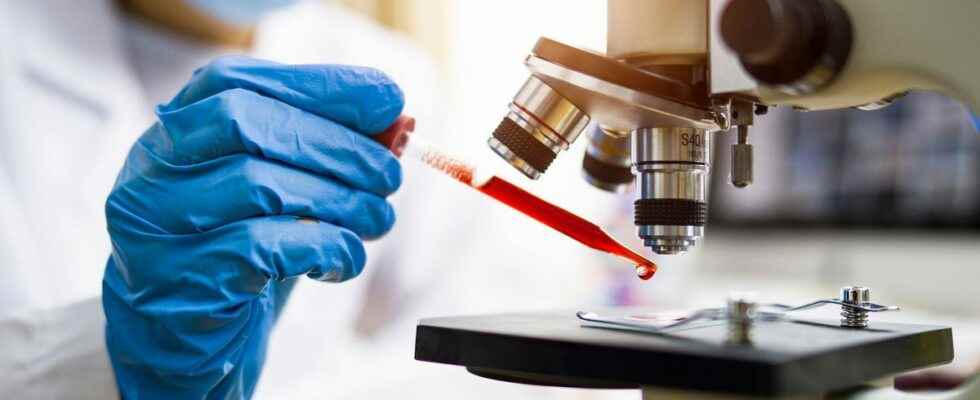Published on
Updated
Reading 2 mins.
in collaboration with
Ivan Pourmir (medical oncologist)
A method developed by Swedish researchers would make it possible to detect several types of cancer earlier. Update on this discovery with Dr Ivan Pourmir, medical oncologist at the George-Pompidou European Hospital in Paris.
The earlier a cancer is detected, the greater the patient’s chances of survival. Faced with this challenge, a new method of early detection could simultaneously detect several types of newly formed cancers.
43% of cancers were detected within 18 months
In this trial, researchers at Chalmers University of Technology targeted new sugar-based proteins, glycosaminoglycans, or glycans. Their production seems to be disrupted when tumors appear.
They then analyzed 2,604 urine and blood plasma samples collected from 1,260 patients with identified early cancer (from a list of 14 types of cancer tested).
By comparing these samples, they then established different profiles and levels of glycans depending on the nature of the tumor.
Results ? Their test, which is based on the principle of “liquid biopsy”, succeeded in detecting 43% of cancers with poor prognosis in 18 months.
This technique also detected 21% of early stage 1 tumors (small tumors that have not yet spread throughout the body).
“This is a previously unexplored method, and thanks to the fact that we were able to test it on a large population, we can show that it is effective in finding more stage I cancers and more types of cancers. The method finds types of cancer that are not screened today and cannot be found with DNA-based MCED tests, such as brain tumors and kidney cancer“, reveals Francesco Gatto, visiting researcher in the Department of Biology and Biological Engineering at Chalmers and author of the study.
Glycosaminoglycans would therefore seem to be excellent biomarkers for detecting cancer in a “non-invasive” way.
Cheaper and more convenient tests
Other good news: the test is relatively affordable ($50). In addition, it is easy to use and painless for the patient: a blood test or a urine sample is enough.
“The fact that the method is relatively simple means that the cost will be considerably low, which will ultimately allow more people to have access to this test.“, welcomes Francesco Gatto.
Scientists now hope to be able to conduct further research with even more participants.
“This is a groundbreaking study that gives us hope that one day society will be able to create screening programs that can detect all types of cancer early.r”, concludes Francesco Gatto.
For his part, Dr. Ivan Pourmir, medical oncologist at the European George-Pompidou Hospital in Paris, believes that the results of this study are rather encouraging.
“This test seems promising to me, with real added value compared to existing screenings on urine and blood. The approach is broader in the face of the different types of cancer and the performance in terms of specificity of the test is interesting“, he confirms.
In contrast, “The results were established retrospectively; they must now be validated prospectively. This will allow you to really see what is happening over time. Another reservation: the performance of the test is not the same from one cancer to another. Thus, it only has 47% sensitivity in the detection of ENT cancers, while for the kidney, we climb up to 84%”.
